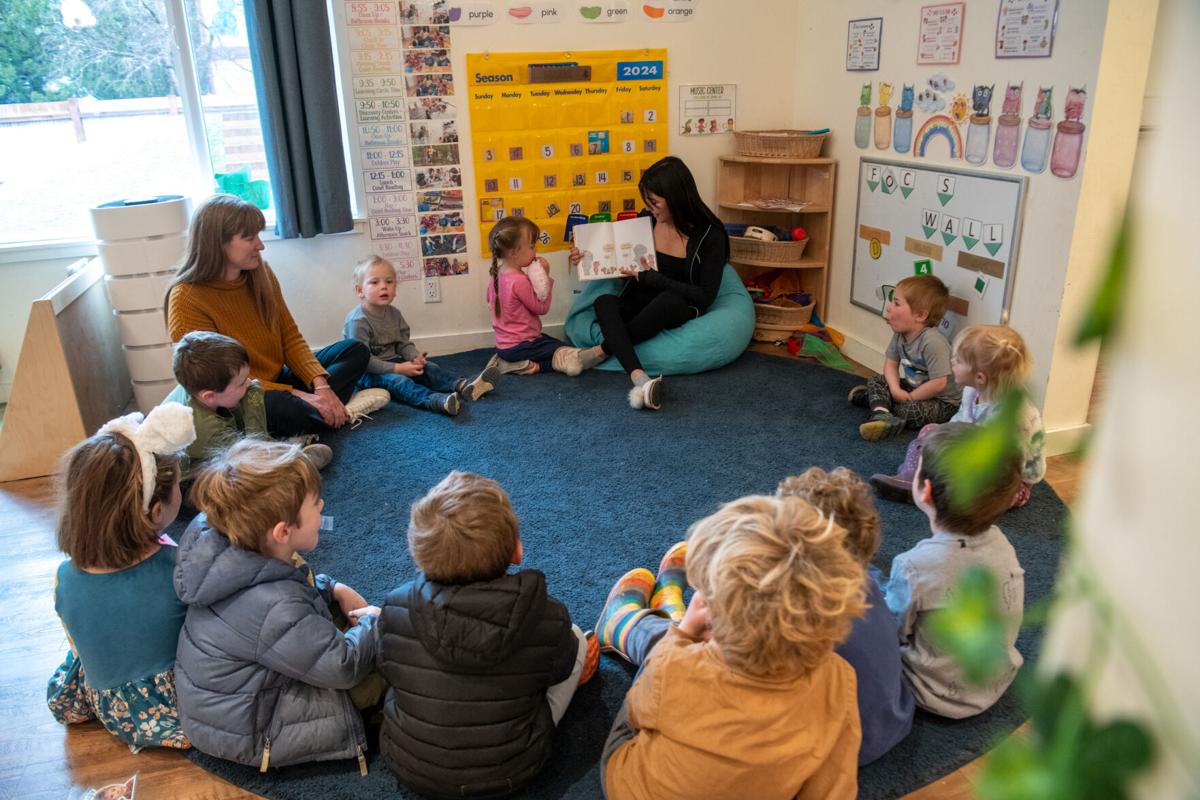

The Pitkin Board of County Commissioners on Wednesday unanimously approved a plan to create a special tax district to fund early childhood education from Aspen to Parachute.
Pitkin County was the last of three county boards in the special tax district boundary to approve the Confluence Early Childhood Education Coalition’s service plan for the district; Eagle County commissioners approved the plan Tuesday and Garfield County commissioners approved the plan on March 17.
Now, CECE will gather signatures from voters and file an intent for a ballot question with the district court to levy a 0.25% sales tax to ease burdensome child care costs for local families. If approved by voters, it would be the first of its kind in Colorado. It would span Pitkin and Garfield counties and the portion of Eagle County in the Roaring Fork School District boundaries.
“It encompasses the economically and socially interconnected region that is Parachute to Aspen,” CECE Director Maggie Tiscornia told the BOCC on Wednesday.
The district will pose the question to voters in November 2025 or November 2026.
It anticipates the tax will raise about $10 million of revenue in its first year of implementation and expects that revenue to stay relatively consistent. It plans to use a majority of the money generated to fund a tuition assistance program for families.
The district also plans to use the revenues to provide education grants to child care providers to help increase capacity at existing facilities in the Roaring Fork Valley, including through staff recruitment and retention efforts. The money could also go toward outreach and navigation of services to assist families in finding the care that meets their needs, and administrative costs for the district.
Everyday essential products including groceries, gas, diapers, medical supplies, medicines and feminine hygiene products would be exempt from the sales tax.
While individual employers in the valley — including Aspen One, the valley’s largest employer — have started tackling child care access with their own employees, CECE argued the issue requires “a more systemic fix.”
“The reason we want to work at a regional level is because you want to make sure that families can pick whether their child care should be close to home or close to work,” Hannah Berman said during the Wednesday BOCC meeting. Berman is the senior manager for sustainability and philanthropy at Aspen One and has been part of CECE for five years.
“This would enable that sort of flexibility and it also lets us kind of cut through some of the lines, so we’re not working across three counties, 10 towns, multiple school districts. It really creates a glove that fits our region,” she continued.
The district would bolster early childhood programs in a region facing a dramatic shortage of such services. Over 5,100 children under 5 years old live from Aspen to Parachute, but 44% of them cannot receive early child care because of a limited number of licensed providers, according to a fall 2024 survey of providers done by CECE.
Early childhood programs are also expensive for families. The average monthly tuition for two children in child care ranges from $2,500 to $3,800, according to the coalition.
Commissioner Patti Clapper worried some voters might question the tax because several municipalities and counties already have taxes to support child care. The city of Aspen levies a 0.45% sales tax, a portion of which funds Kids First, which provides financial assistance to qualified families to help pay for child care in most licensed Pitkin County facilities.
Still, Clapper voted to approve the special district.
“This coalition, this service plan, is not here to duplicate or take away anything,” Valerie Carlin, the chief impact officer at Aspen Community Foundation, said. ACF serves as the sponsoring organization for CECE. “It’s here to amplify, and so that’s going to be something that the board will need to work on.”
Voters will also elect five board members to serve on the special district when they are asked to approve the tax. The board will be responsible for setting the special district’s annual budget.
The coalition is communicating with other taxing entities to determine when to place the question on the ballot. It does not want to overwhelm voters with several tax questions.
The Aspen School District board of education is weighing five different tax questions for the November ballot. It will determine which, if any, it will pursue in the coming months.
The commissioners approved the special district unanimously.
“I’ve not heard of anyone who … thinks this is a bad idea,” PitCo Commissioner Greg Poschman said. “There’s so much positive public support, I’m really encouraged by this.”